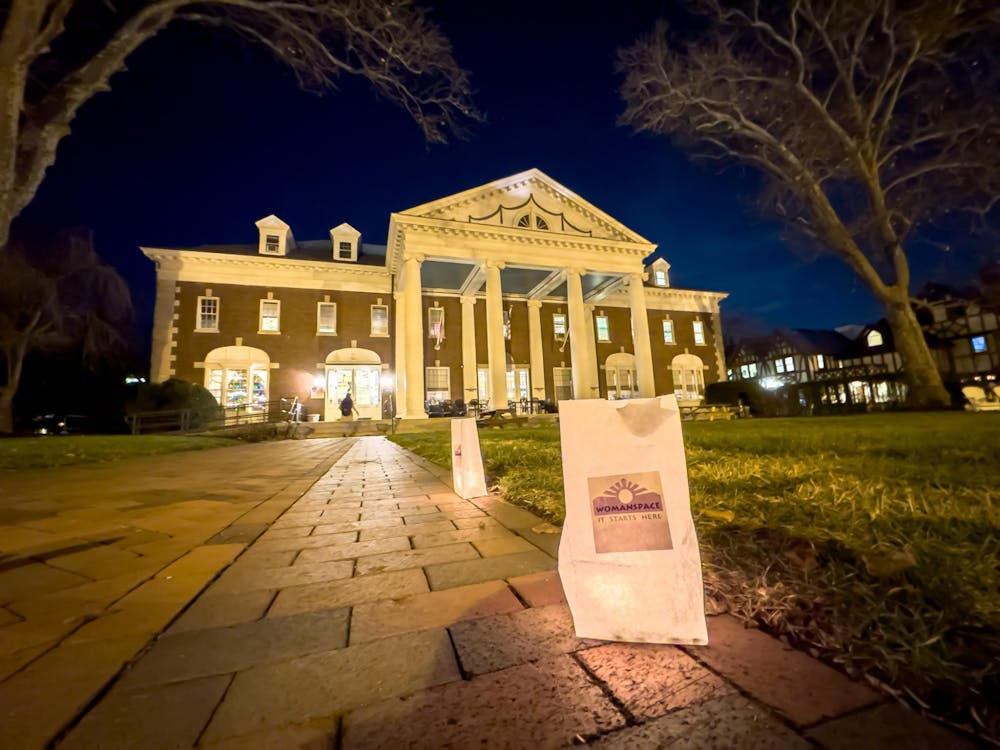On the evening of Monday, Dec. 5, a group of Sexual Harassment/Assault Advising, Resource, and Education (SHARE) Peers watched as Delaney Callaghan ’23 lit a candle on the sidewalk of Prospect Street. As she placed it into a small bag adorned with the logo of Womanspace, a Princeton nonprofit that provides resources for those impacted by domestic and sexual violence, audible gasps went up from the group as they observed the creation of the first luminary for Communities of Light.
This year, SHARE revived its participation in Communities of Light, an annual event held by Womanspace to raise awareness and show support for those impacted by domestic and sexual violence. At sunset on Monday, SHARE Peers placed luminaries along the sidewalks and walkways of eating clubs participating in the event, as well as outside Frist Campus Center. They also placed signs explaining the purpose of the event alongside the luminaries. According to the Womanspace website, the candles serve as “a powerful symbol of hope for men, women, and children impacted by domestic violence, sexual assault, and human trafficking.”
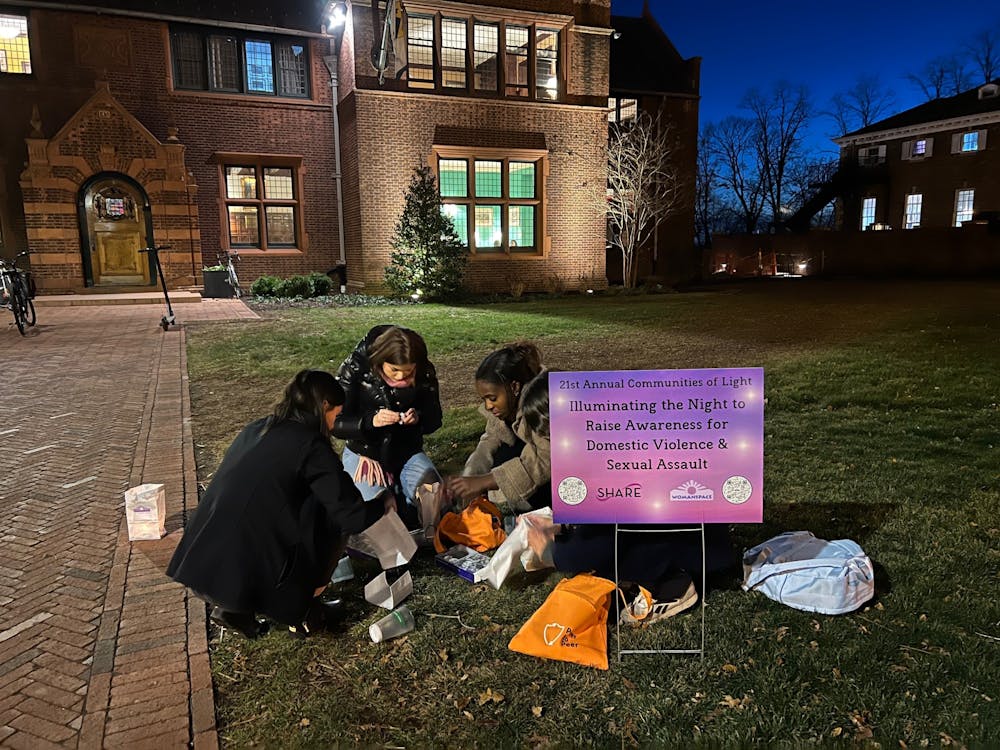
SHARE Peers setting up for the event
Sophie Glaser / The Daily Princetonian
According to Julie Wilson ’23, President of the SHARE Peer Program, the collaboration between SHARE and Womanspace was “a demonstration of support for survivors of domestic violence and any sort of sexual violence.” To participate in the event, eating clubs purchased luminary kits from Womanspace and the funds raised from the purchase went towards Womanspace’s efforts to support “survivors from the moment of crisis, through their journey of healing, and ultimately to self-sufficiency.”
Annette Macaluso, Associate Director of SHARE, described the event as “a representation of the community saying, ‘we’re here to support survivors, and we have resources, we have the time for you, we recognize you, we see you.’”
Ten of the 11 eating clubs purchased luminary kits from Womanspace and participated in the event. Several members of the SHARE Peers group remarked on how excited they were to finally see their planning come to fruition. As students passed by, looking at the signs and luminaries, some stopped to ask what the SHARE Peers were doing.
“It was incredibly fulfilling to see people stop to look at the lights and ask us about the initiative,” Wilson said.

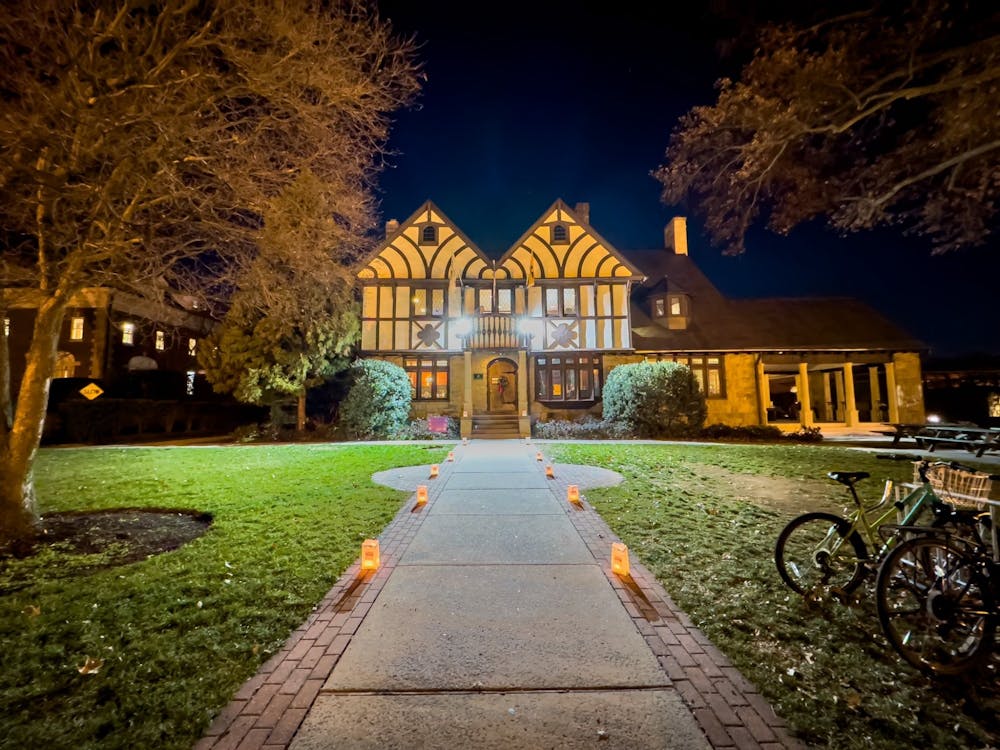
Rodolfo Arzaga / Daily Princetonian
The event raised awareness about resources available through both SHARE and Womanspace.
“The Peers have really taken the lead on this. They wanted to do something a little different this year, which is to really emphasize the connection and the importance of Womanspace and SHARE partnering,” Macaluso said.

Macaluso noted the different kinds of resources offered by both organizations.
“[SHARE] has a lot of expertise on University processes: Title IX, No Contact Orders, safety planning on campus, and counselors with short-term therapy and counseling. [Womanspace] brings in the expertise of the community at large and Mercer County,” according to Macaluso.
“Partnering with them, we bring our expertise in Princeton’s resources, and they bring in their resources in the community, and we can really create a support network for survivors and folks that need it,” she said.
According to the SHARE website, Womanspace provides “a 24-hour, confidential hotline; advocates and professionals to facilitate SART [Sexual Assault Response Team] activation; access to legal resources; and individual and group counseling.” They also provide safety planning and response and advocacy training.
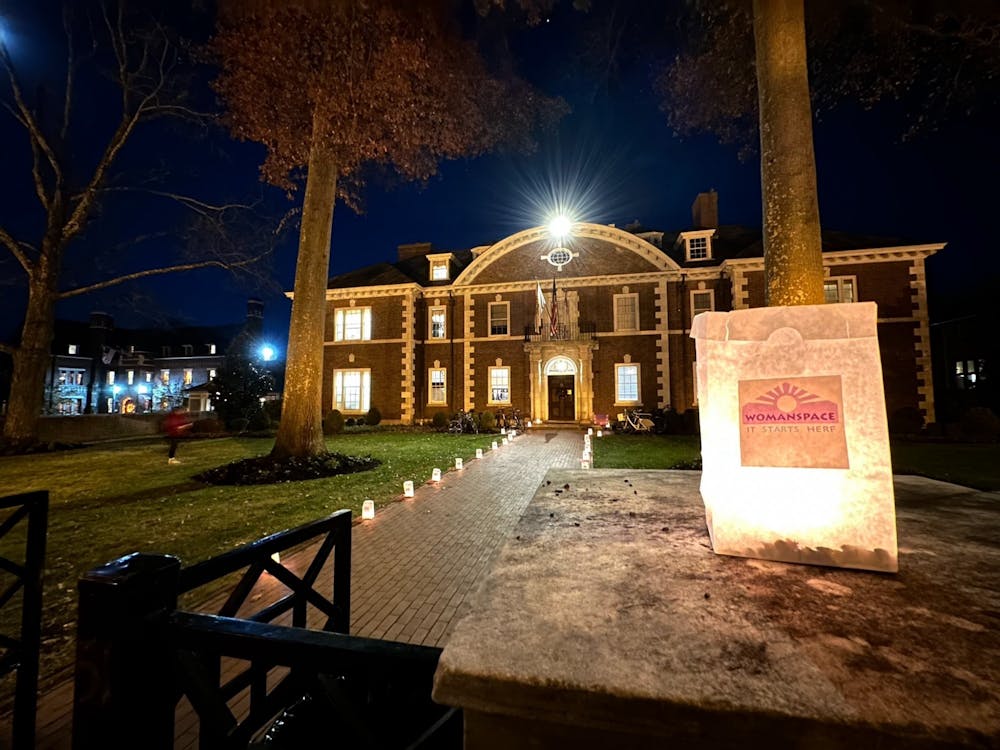
Rodolfo Arzaga / Daily Princetonian
The last time the Princeton community participated in Communities of Light was before the COVID-19 pandemic, in December 2019.
MacKenzie Caputo ’23, Vice President of SHARE Council on Eating Clubs, said that SHARE was “excited to bring this event back after a several-year hiatus due to COVID-19.”
“One of the goals of SHARE is not only to raise awareness on campus but also in the surrounding community,” Caputo added.
Wilson additionally described the difficulties of reviving Communities of Light with a group of leaders who had not experienced the event in recent years.
“I was not involved with SHARE [the last time it did Communities of Light]. So this really is a new event for me as well,” Wilson said. “[Organizing the event] has been a little challenging because neither Annette [nor myself] had experienced it before.”
Several SHARE Peers felt that the Communities of Light event was a success, drawing the participation of almost all eating clubs.
“While partnering with the clubs definitely involved some logistics, [SHARE is] so appreciative of the clubs’ willingness to donate time and money to the cause,” Caputo said.
“SHARE has been working over the past two years to revamp education around these issues with a particular focus on the eating clubs, given their social capital and positioning on campus,” Caputo further explained.
Before the pandemic hiatus, Princeton had a long history of partnering with both Womanspace and Communities of Light. “Princeton University from day one has been involved with Communities of Light,” said Susan Adams, who has volunteered at Womanspace for 34 years and currently serves as community outreach coordinator.
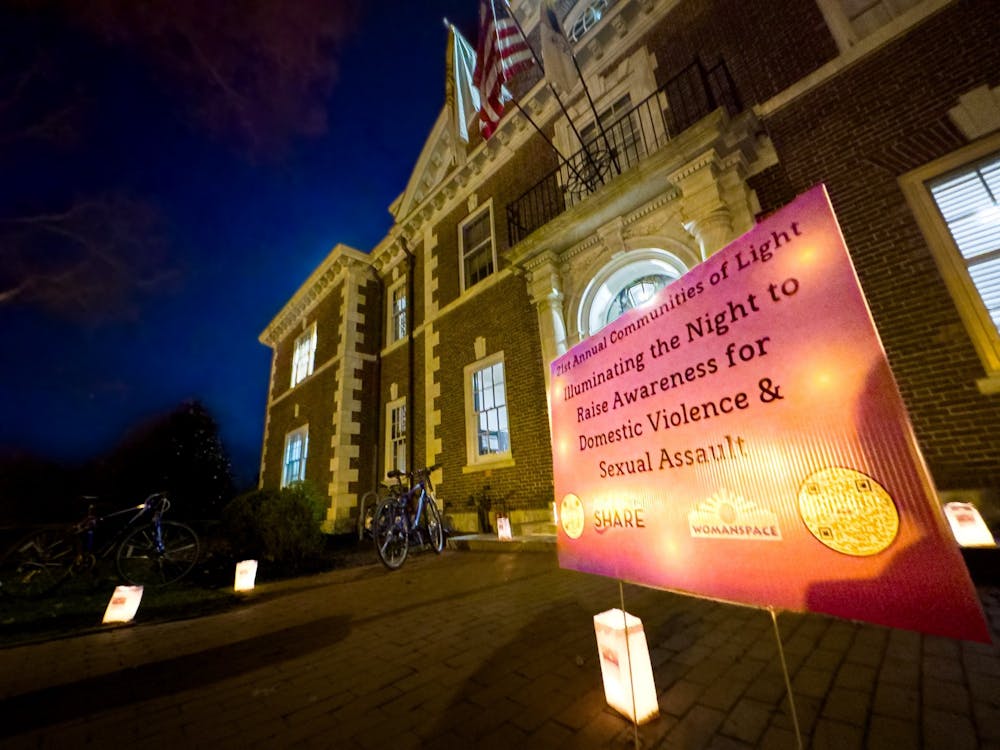
Rodolfo Arzaga / Daily Princetonian
“The SHARE office has been doing the Communities of Light lighting since the beginning,” Adams said. “It started with a volunteer in Pennington.”
The volunteer noticed a similar event held by the Ronald McDonald House while visiting her family in the South and took the idea back with her to New Jersey. Womanspace contacted the organization and they offered advice on how to put the event together.
Communities of Light was born 22 years ago. “The main focus of Communities of Light is to light up neighborhoods and individual street homes, all over the county,” Adams said. “It’s just for anyone who sees the light, the candles. A good portion of the community knows that it’s for Womanspace. It’s to raise awareness for services, that there’s a light at the end of the tunnel and to come to us.”
In recent months, SHARE has been working on increasing its visibility across campus. Wilson identified what she felt to be a lack of connection between SHARE and the student body during the COVID-19 pandemic that she said SHARE has been working to fix in recent months.
“I think that it became a lot more difficult to connect with people over COVID. Number one, we’re not all together in person, so it’s hard to just come across a SHARE Peer [or] even to know where to look,” Wilson commented.
“Now to increase our visibility, we’ve been really ramping up our social media, and we’ve had a study break,” she said. “I think there are certain pockets of campus where we could be a lot more visible … I think it’s so important that we have representation of all different parts of campus in our SHARE Peer program.”

SHARE Peers plan to execute the event
Sophie Glaser / The Daily Princetonian
She also referenced efforts to increase awareness of resources amongst first-years, including the SHARE play that all first-years watched as part of First-Year Orientation.
Wilson said that she hopes the Communities of Light event helps to “acknowledge the work that survivors put in to heal from the trauma they face. We should be celebrating the strength that they have.”
Sophie Glaser is a Features staff writer, News contributor, and copy editor for the ‘Prince.’ Please direct any corrections requests to corrections[at]dailyprincetonian.com.





